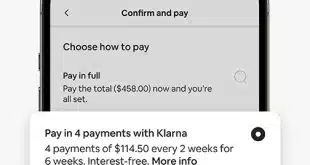Bitcoin has floundered because it serves no real need. The story with Libra is far different.
While Bitcoin and Libra are both currencies and payment systems, their potentials are vastly different. From its inception, Bitcoin evangelists enthused it would upend reigning fiat currencies and electronic-payment systems. A high-octane cocktail of libertarian ideology, entrepreneurial zeal, greed, and abundant capital fueled a crusade of Bitcoin ventures.
The much-hyped, putatively disruptive Bitcoin, however, was never fit for purpose. It performed badly, was highly volatile, lacked institutional governance, and never achieved—or had a plausible path to achieving—network critical mass. The head of the Bank of International Settlements, Agustin Carstens, declared cryptocurrencies “are not money … They are neither a good means of payment, nor a good unit of account, nor are they suitable as a store of value.”
Nor, in major markets, did Bitcoin ever have a compelling use case, save facilitating illicit commerce and evading capital controls. Plus, it did serve as a speculative bet there would always be a greater fool willing to pay more tomorrow.
Facebook designed Libra mindful of Bitcoin’s shortcomings and to refute Carstens’s criticism. As a stablecoin tied to fiat currencies and securities to minimize volatility, it’s architected to perform better. It has association governance to allay fears of control by the social-media Gargantua. And it emulates the open model Mastercard and Visa employed so successfully to build global networks.
Notwithstanding Libra’s independent governance, its backing by the dollar and other fiat currencies rather than gold, and its wrapping with financial-inclusion pieties, governments are alarmed.
The G7 Working Group on Stablecoins warned Libra “could pose challenges and risks to: monetary policy, financial stability, the international monetary system, (and) fair competition.”
The Swiss Financial Market Supervisory Authority said “the planned international scope of the (Libra) project requires an internationally coordinated approach.” That’s likely to stymie genuine money-and-payments innovation.
An October House Financial Services Committee hearing, “An Examination of Facebook and Its Impact on the Financial Services and Housing Sectors,” underscored Washington’s hostility to Libra. Chairwoman Maxine Waters worried the social-media titan’s stablecoin would be a “global digital currency that would challenge the U.S. dollar.” Governments enjoy and ruthlessly protect their currency monopolies.
Congresswoman Carolyn Maloney demanded Facebook chief executive Mark Zuckerberg pledge not to launch Libra unless and until the Fed, FDIC, OCC, SEC, CFTC, CFPB, Fincen, and FHA have given all necessary approvals. He agreed.
Zuckerberg can commit Facebook to running Washington’s regulatory gauntlet before launch. Presumably, however, he can’t commit the Swiss Libra association.
Congresswoman Ann Wagner asked why PayPal, Visa, Mastercard, Stripe, Mercadopago, eBay, and Booking Holdings bailed on Libra. PayU is the only payments firm still in. The political heat is one reason. Also, for the payment networks, Libra could be a formidable competitor.
Congresswoman Nydia Velázquez worried Libra might “break the monetary system.” She demanded it hold off until Congress establishes a legal framework. Facebook’s chief politely refused.
The fiercest inquisitor, Congressman Brad Sherman, tarred Zuckerberg as “the richest man in the world” (he’s not) and accused him of hiding behind the poor and “trying to help drug dealers, terrorists, and tax evaders.”
With Facebook’s 2.4 billion users and its resources, it could incent use on its platform, then in adjacent e-commerce and at the physical point of sale. That would spur efforts by other association members. Consequently, Libra’s potentially far more viable, and more threatening, than Bitcoin and several thousand other cryptocurrencies extant.
But not yet in the United States. The dollar is the world’s reserve and a relatively hard fiat currency. Electronic-payment systems work well, have critical mass, and are habitual.
In much of the Third World however, fiat currencies are horribly debased. Venezuelan inflation crested at over a million percent. And electronic-payment systems don’t have critical mass. Libra could launch in more hospitable and promising markets with weaker national currencies and electronic-payment systems.
Zuckerberg and Libra point man David Marcus would do well to take a cue from Geoffrey Moore’s seminal “Crossing the Chasm.” Moore observes successful breakthrough technologies penetrate and dominate mainstream markets not by challenging incumbents head-on, but rather by first focusing on and winning early adopters.
Self-interest and competition ensure value. In “Denationalisation of Money: The Argument Refined,” Nobel-Prize-winning economist Friedrich Hayek contended competing currencies ensure good money, and that good money can only come from self-interest, not government benevolence.
There’s already a modicum of competition among fiat currencies. The dollar circulates in Ecuador, Panama, and Zimbabwe. Hong Kong and Bermuda employ dollar-based currency boards. Competition from a credible global stablecoin would check governments’ abuse of their currency monopolies and force private payment systems to up their games.
Bitcoin isn’t going to achieve relevance, much less disrupt fiat currencies or major electronic payment systems. But if Facebook and the Libra Association’s members put their shoulders behind the Zuck buck, initially in select markets ripe for a better currency and payment system, they could find a path ultimately to planetwide consequence. Waiting for Washington’s imprimatur would defer, perhaps indefinitely, serving real and needy markets.
Messieurs Zuckerberg and Marcus, damn the torpedoes!
—Eric Grover is principal at Intrepid Ventures, Minden, Nev.




